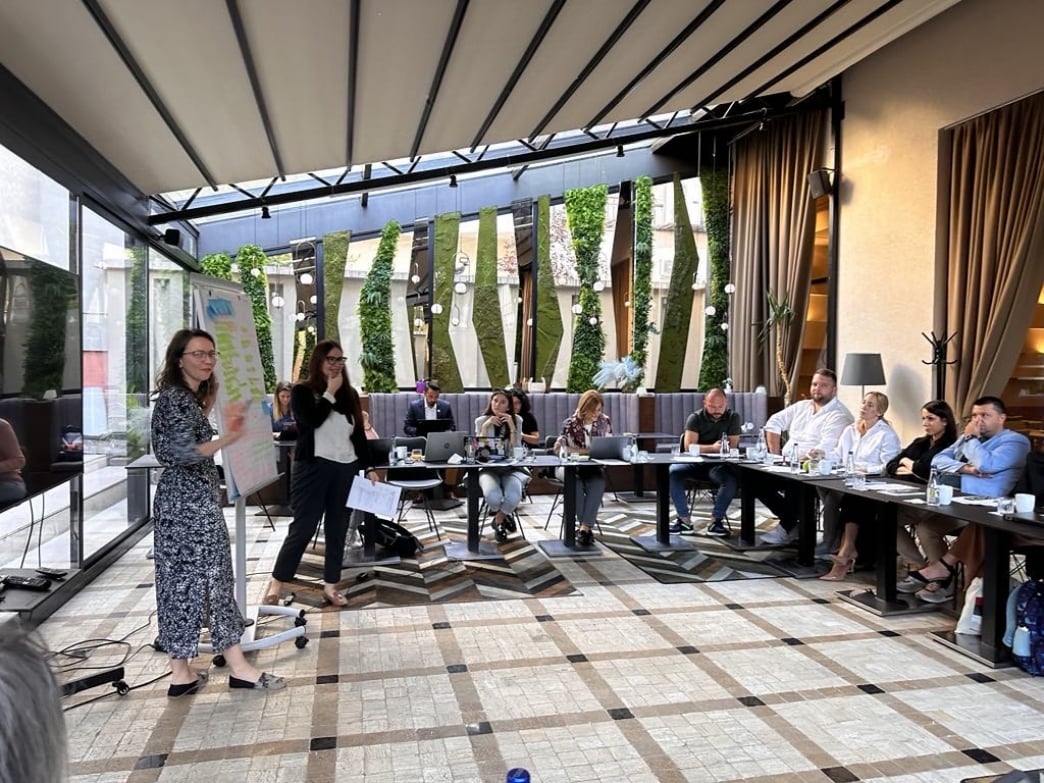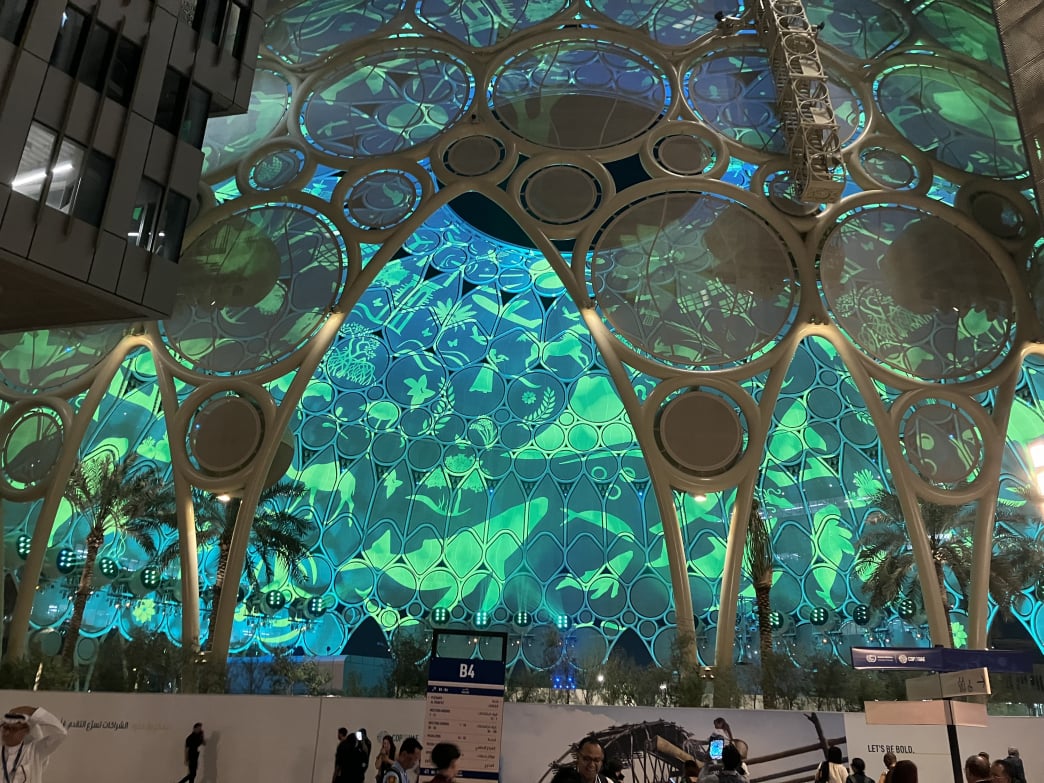
SHARE
The National Democratic Institute (NDI) has engaged in programming on the environment for over twenty years. Often, the environment is an issue political parties, civil society and youth choose for their democracy strengthening to build cross-party coalitions, stand up youth academies, engage civil society in policy making, and promote other important government functions. In 2021, NDI leadership identified environmental governance as a strategic priority of the Institute – a wise decision as the Institute’s environmental programming since 2015 has grown rapidly. As countries grapple with designing and executing large-scale adaptation, mitigation and protection plans, issues of democratic participation and governance are increasingly urgent. In light of the importance of democracy and governance for the environment, NDI’s work in 2023 will be pivotal in establishing NDI as an environmental governance leader.
What NDI has accomplished in 2023
Expanding Programming
Since 2020, NDI’s environmental programming has increased significantly and takes place in every region in which NDI works:
-
Central and East Europe: legislative strengthening, inclusive political participation, strengthening local government capacity on environmental policy making, working with cities to advocate for evidence based policy making.
-
Central and West Africa: Building local government capacity to manage environmental issues.
-
Eurasia: Strengthening local governments and legislatures on environmental issues.
-
Latin America and the Caribbean (LAC): Political party strengthening to engage constituents on the environment and craft legislation.
-
Middle East and North Africa: Inclusive political participation and local government strengthening of the environment.
-
South and East Asia: Inclusive political participation and political party strengthening on the environment.
The Institute has chosen to prioritize increasing public awareness, empowering local civil society organizations and building government capacity in addressing the climate challenge around the world. Programs in the Maldives and Central and Eastern Europe (CEE) exemplify the effectiveness of this pivot to focusing on environmental governance.
_A3A0969.jpg

The acceleration of climate change and the degrading environment presents a threat to democratic institutions worldwide, impacting their legitimacy, their capacity and their accountability. However, for frontline states like the Maldives and other low-lying states, the twin crises of democracy and climate are not a threat, but an existential reality. To strengthen the country’s democratic response, NDI has supported local civil society organizations in the creation of climate assemblies to provide political leaders with citizen preferences on environmental policy. In addition, climate fairs educate citizens on environmental issues so that they can make informed decisions about their communities and their well-being. The climate assemblies produced a Citizen Manifesto on the Environment to influence party platforms and environmental policy outcomes in the Maldives. In introducing the benefits of participatory and deliberative democracy (PDD) in the Maldives, local governments have demanded the capacity to learn about and organize PDD processes directly, such as citizen assemblies, on the environment, which can be replicated to other policy areas such as health and education. The Maldives is an example of how strengthening democratic norms and processes on the environment can have a democracy multiplier effect.
CEE Regional Work on the Environment: Identifying Democracy Deficits
In Central and Eastern Europe (CEE), climate change and environmental degradation present several challenges to democratic governance and test the ways democracies can respond to a growing problem that is directly affecting more and more citizens. Due to the lack of wide public debate on green issues in this region and democratic processes involving citizens and local decision makers, there exists a noticeable lack of understanding and enactment of potential solutions to environmental problems in this region. Citizens are left out of critical and immediate conversations that have very real and dire implications for their lives, while weak decision making structures lead to missed opportunities for change. For example, while the EU has passed some notable environmental legislation and provides funding for green investment, democratic deficits mean that countries in CEE are lagging behind, including on their Nationally Determined Contributions, and missing out on vital support to achieve these.
NDI has worked to frame good environmental governance as a response to long standing democracy deficits. For example, NDI Serbia organized a conference in October 2023 and found that CEE countries experience the following democratic deficits most acutely:
-
Information deficit: Lack of information integrity and a lack of awareness and knowledge of environmental issues hampers effective environmental policy making. Coupled with the spread of unreliable information, this very often leads to the polarization of societies. Sometimes the media and politicians fuel this division to promote their own interests and agendas. Meanwhile, citizens are not adequately informed and do not have enough opportunities to organize and surface their own agendas for change and to advocate to decision-makers for solutions.
IMG_3245 (1).jpg
 Participants at a regional conference in Belgrade discuss the environmental impact of democracy deficits in Central and Eastern Europe and the Western Balkans; October 11-13, 2023; Photo taken by Judit Bari.
Participants at a regional conference in Belgrade discuss the environmental impact of democracy deficits in Central and Eastern Europe and the Western Balkans; October 11-13, 2023; Photo taken by Judit Bari. -
Rule of law deficit: Inadequate legislation and deficiencies in the implementation of existing legislation are particularly acute when it comes to environmental issues. Citizens are not able to hold decision-makers to account because of the weakness of their legal systems, especially on environmental jurisprudence. This lack of accountability creates space for abuse and corruption, such as high polluting industrial investments that circumvent environmental protection legislation. Even where environmental legislation is enforced, the low penalties for violations result in legislative practices that favor investors over environmental protection.
-
Institutional deficit: As environmental policy making is relatively new in the region, neither civil society nor relevant officials have enough knowledge, willingness or experience to handle environmental challenges. Citizens have difficulty engaging with decision makers because there are very few spaces and mechanisms for public participation. These factors collectively hinder environmental progress in the region, and in particular hinder effective, evidence-based environmental policy making.
-
Global connection deficit: Citizens, civil society and decision-makers from this region have been isolated from others working in the environmental field globally. This results in missed opportunities and creates societal tensions – especially with and between marginalized groups – instead of allowing citizens to unite and hold their decision makers accountable. For example, severe limits on migration and the simultaneous relocation of people as guest workers from abroad to the CEE region puts pressure on local municipalities and citizens living in those municipalities, by stretching local resources and services. This situation, resulting in real or perceived competition for resources and jobs between locals and guest workers, exacerbates the already polarized society, increases xenophobia, and creates conflicts that are directly connected to environmental issues.
NDI works to initiate and nurture public debates at local and national levels that can both remedy these deficits and pave the way for evidence-based policies and actionable solutions. At both the local and the national level, the Institute creates networks of decision makers, as well as coalitions of citizens, NGOs and legal experts to strengthen democratic processes and, at the same time, support effective environmental policy making and practical solutions.
IMG_2740 (1).jpg

In 2023, NDI’s application to become a permanent observer of the Conference of Parties (COP) was accepted by the United Nations. COP is important for NDI to be involved in. It is where states decide on the implementation of the United Nations Framework Convention on Climate Change (UNFCCC), which has been ratified by 198 countries. As a permanent civil society observer, NDI can form a delegation, propose side events and issue statements on negotiations leading up to and at any future COPs. This increases awareness by NDI teams and partners of emerging UNFCCC climate policies and any additional conventions that operationalize it, including the Paris Agreement, a legally binding treaty by countries to limit their greenhouse emissions to agreed upon thresholds. NDI’s delegation of seven staff attended COP28 in Dubai both in-person and virtually in December 2023. Engagement with international efforts, like COP, allow NDI to tie its programming to support for achieving national commitments to international conventions – a way to further scale the Institute’s environmental governance work.
As countries implement their commitments to international climate conventions, there is often a substantial gap in countries’ abilities to meet their stated goals. The results of the first Global Stocktake, a review of how countries have met their Nationally Determined Contributions (NDCs), which were a focus of COP28, is an example. Signatories to the Paris Agreement must articulate five year plans (NDCs) for reducing their greenhouse emissions. The Global Stocktake determined that most countries are not on track to achieve their NDC targets. At COP, Engage, a global consortium of research institutes modeling the feasibility of country pathways to meeting their Paris commitments, shared their findings that political feasibility is the core constraint. The issue, however, is not low political awareness and weak political motivation, but rather a deficit of policy “know-how” and governance capacity for complex, scaled implementations, such as renewables and nuclear energy. The political constraints become more complex with newer solutions, such as the decarbonization of industry, where there are limited examples for countries to learn from and no systematic understanding of how governments in different political and economic contexts can politically incentivize investment and implement solutions at scale.
Despite these obstacles and governance gaps, cities have engaged in extraordinary activism on climate and the environment. Mayors around the world have become experts in advocating for and implementing climate change interventions, as seen at COP by the meetings of the C40 Cities Climate Leadership Group, the Global Covenant of Mayors for Climate and Energy, and Local Governments for Sustainability (ICLEI). COP28 also demonstrated the tremendous progress made by youth, women and indigenous groups in elevating their collective voices to influence global climate policies and negotiations. Increasingly their interests and perspectives on the environment are being represented in international conventions and are supported by the United Nations offices, such as the Action for Climate Empowerment (ACE), the International Youth Climate Movement (YOUNGO), Gender and Climate Change and Indigenous Peoples and Climate Action.
Where we’re headed
As NDI’s environmental governance programming expands, the Institute is committed to sharing lessons learned across teams and building a community of practice within NDI and the broader democracy and governance community. NDI will continue to use the windows of democracy strengthening and innovation that working on the environment provides. This includes improving government accountability, expanding opportunities for citizen engagement through participatory and deliberative democracy processes, and leveraging government commitments to international processes on the environment to drive democratic and governance reform.
Authors: Lauren Van Metre, Director of the Peace, Climate and Democratic Resilience team at NDI and leads the Institute’s Environmental Governance and Resilience Core and Working Groups, and Violeta Vajda, Resident Director of NDI/Hungary who also serves as the focal point for NDI environmental governance/resilience programming in Central and Eastern Europe
Related Stories:
How Citizen Participation is Key to Environmental Sustainability in Lebanon
Pioneering Environmental Action in Poland’s Urban Centers
Defending Democracy: National Security and the Environment
###
NDI is a non-profit, non-partisan, non-governmental organization that works in partnership around the world to strengthen and safeguard democratic institutions, processes, norms and values to secure a better quality of life for all. NDI envisions a world where democracy and freedom prevail, with dignity for all.



